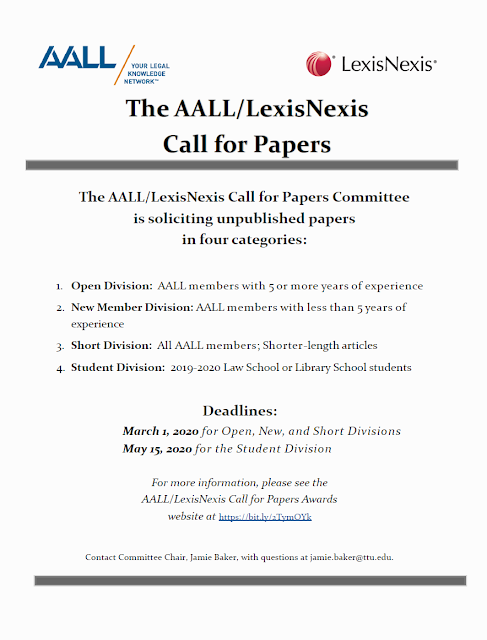Pew Survey Highlights Disconnect For Libraries
A new Pew survey called Libraries at the Crossroads finds that while people report feeling strongly about the importance of public libraries in their communities, those people are actually using libraries less and less.
Atlantic's take is that overall, perhaps people aren’t visiting libraries as much because their relationship to the printed word, still a library’s core offering, is dramatically changing.
Nearly one-third of [Pew survey] respondents who were 16 and older said libraries should “definitely” remove public access to some of their print books and stacks in order to free up space for technology hubs and other more customizable workspaces like reading spaces and meeting rooms. Many more were open to the idea: 40 percent of those surveyed said libraries should “maybe” reconfigure space to include fewer printed books. On top of that, almost half of those surveyed said libraries should “definitely” make 3-D printing technologies available to patrons who want to use them to make their own objects.
Although the libraries that we know today are changing rapidly, it will take time. Even at the Library of Congress, people are still designing the cataloging infrastructure for a fully digitized system—actually getting materials online is a separate and ongoing challenge. At many institutions, changes will likely depend on the actual behaviors of patrons, not just ideas about how a library should be from those who aren’t using libraries as it is. “Even though people strongly believe in the role of libraries in digital inclusion, relatively few library users actually used libraries for this purpose,” Pew wrote of its latest findings. “Just 7 percent say they had taken a class on how to use the internet or computers when asked about their use of the library in the past 12 months.” [And] it’s not as though paper books will disappear overnight. Traditional publishers are still printing, on paper, some 300,000 original titles annually.
This latest Pew survey, then, seems emblematic of a broader disconnect between the way people view the written word and perceive their relationship to it. Which mirrors how people see libraries, it seems: A library is a critical institution for the kind of community people say they want to live in, a space where those people could—theoretically, anyway—learn and gather. With or without printed books, and certainly with a smaller collection of them, a library can still be that.
As the Atlantic article points out, there may be a time in the near future when a public library looks more like small coffee shops spread throughout a community. These would be spaces for people to gather, learn, and create while mostly downloading books from their e-readers.
Atlantic's take is that overall, perhaps people aren’t visiting libraries as much because their relationship to the printed word, still a library’s core offering, is dramatically changing.
Nearly one-third of [Pew survey] respondents who were 16 and older said libraries should “definitely” remove public access to some of their print books and stacks in order to free up space for technology hubs and other more customizable workspaces like reading spaces and meeting rooms. Many more were open to the idea: 40 percent of those surveyed said libraries should “maybe” reconfigure space to include fewer printed books. On top of that, almost half of those surveyed said libraries should “definitely” make 3-D printing technologies available to patrons who want to use them to make their own objects.
Although the libraries that we know today are changing rapidly, it will take time. Even at the Library of Congress, people are still designing the cataloging infrastructure for a fully digitized system—actually getting materials online is a separate and ongoing challenge. At many institutions, changes will likely depend on the actual behaviors of patrons, not just ideas about how a library should be from those who aren’t using libraries as it is. “Even though people strongly believe in the role of libraries in digital inclusion, relatively few library users actually used libraries for this purpose,” Pew wrote of its latest findings. “Just 7 percent say they had taken a class on how to use the internet or computers when asked about their use of the library in the past 12 months.” [And] it’s not as though paper books will disappear overnight. Traditional publishers are still printing, on paper, some 300,000 original titles annually.
This latest Pew survey, then, seems emblematic of a broader disconnect between the way people view the written word and perceive their relationship to it. Which mirrors how people see libraries, it seems: A library is a critical institution for the kind of community people say they want to live in, a space where those people could—theoretically, anyway—learn and gather. With or without printed books, and certainly with a smaller collection of them, a library can still be that.
As the Atlantic article points out, there may be a time in the near future when a public library looks more like small coffee shops spread throughout a community. These would be spaces for people to gather, learn, and create while mostly downloading books from their e-readers.


Comments
Post a Comment